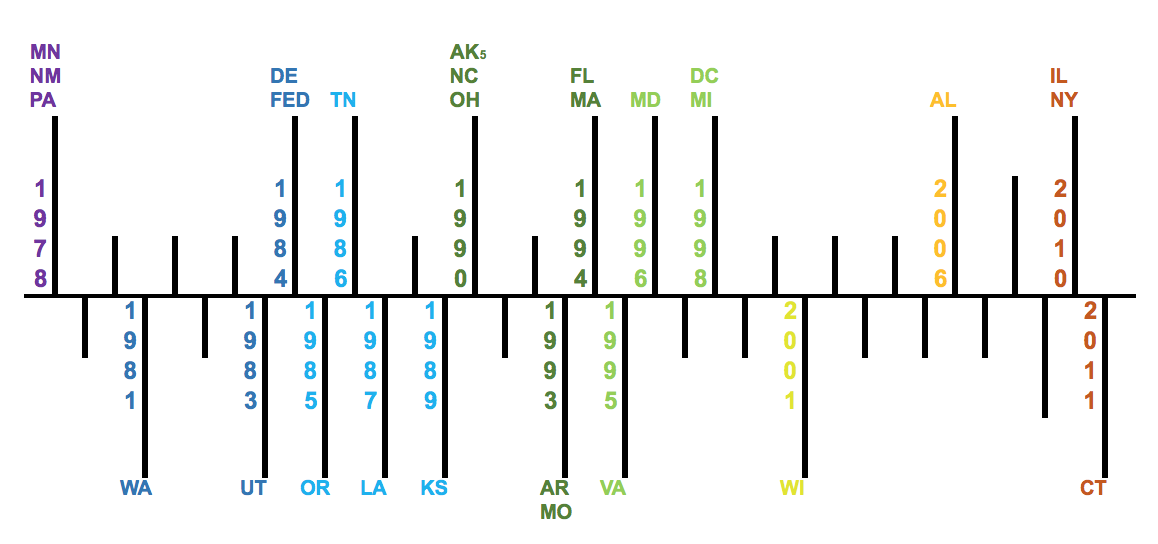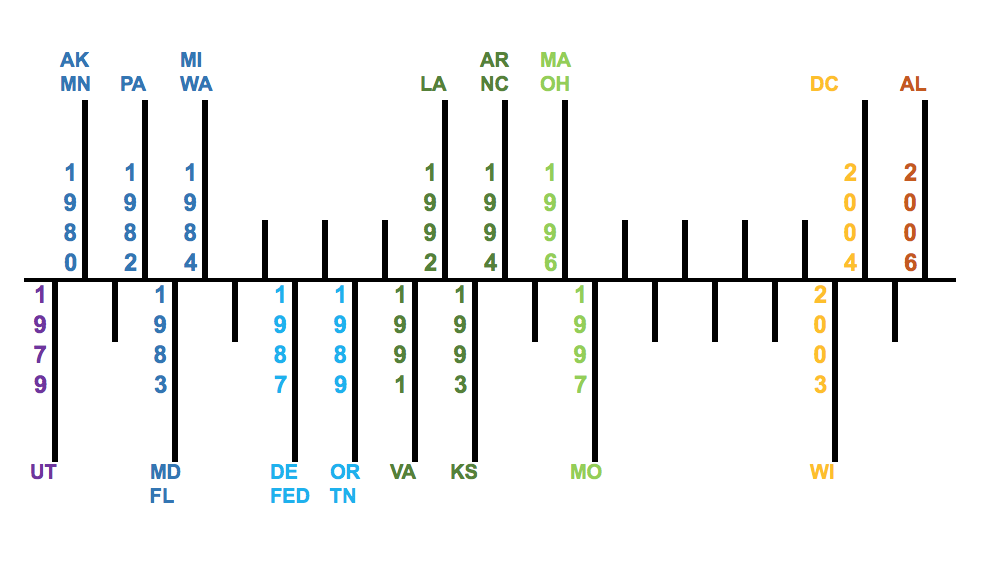Formation of Sentencing Commissions, 1978-present
Starting in the late 1970’s, state sentencing commissions have been founded to help regulate criminal punishment in their jurisdictions. Commissions are formed for a number of reasons, and have varying structures, responsibilities, and locations in their state government. Their duties may include formation and revision of sentencing guidelines, analyzing current and future sentencing practices, policies, or laws, proposing new sentencing policies, and/or serving as an informational resource for the jurisdiction. See The Role of the Sentencing Commission for more information. Some commissions listed on the timeline below are now defunct, others are still very active in defining sentencing practices.

Sentencing Guidelines Enacted, 1979-present
Some (but not all) commissions were given the role of writing sentencing guidelines. Guidelines are utilized to help judges make well-reasoned and consistent decisions, to increase proportionality, to institute uniformity, to set priorities in prison use and avoid overcrowding, and/or to better ensure public safety. Many guidelines reforms have been paired with a shift from indeterminate sentencing (in which parole boards are given full discretion over when an offender is released from prison) to a system in which prisoners must serve the pronounced more defined term, with reductions only for good conduct. Sentencing guidelines generally use combinations of offense and offender characteristics to derive recommended sentences for typical cases, while allowing for “departures” from the guidelines in special circumstances that warrant either harsher or more lenient sentencing. See What are Sentencing Guidelines to learn more.


